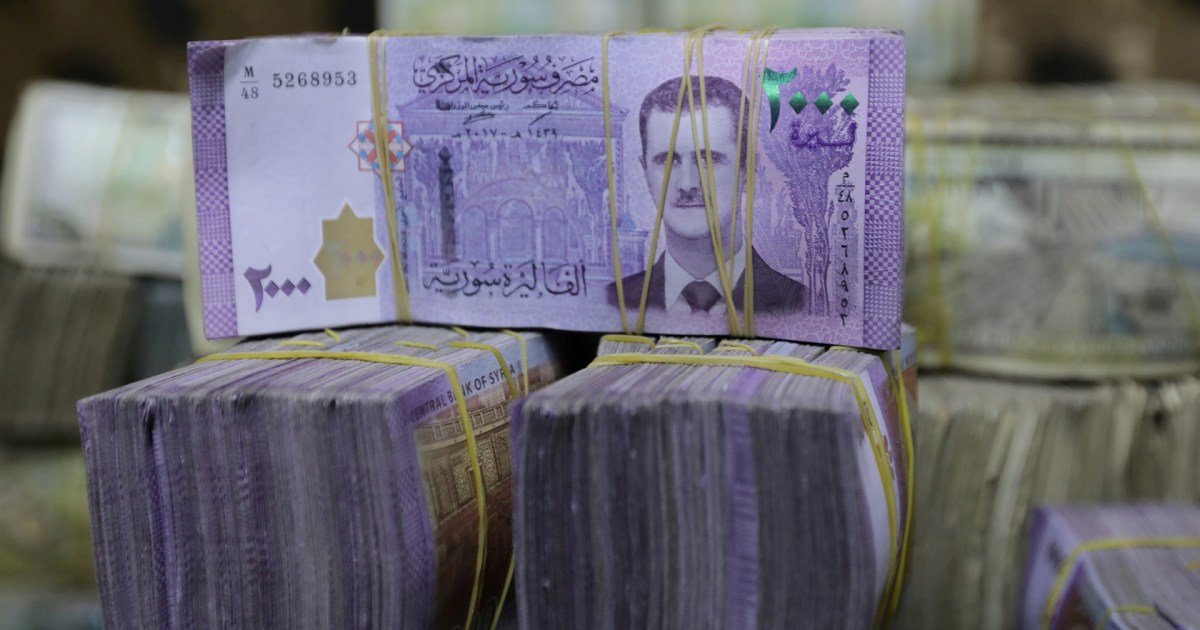Between international sanctions, the economic crisis, and differences within the bloc that governs the country, and amid criticism from Moscow and Tehran and popular demonstrations, the Syrian regime finds itself surrounded by misfortunes from all sides, and here is the Syrian President Bashar al-Assad reeling after twenty years in power.
With this introduction, the French newspaper Liberation opened a joint article between Luc Matteo and Hala Kadmani, starting from the last crises of the country, from the exchange rate of the Syrian pound to the dollar, which he likened to the auction fever, where the pace does not stop for a moment: 1800, 2400, 3000, 3500, 3800 ... etc. Against the dollar, even before the new US sanctions against the Damascus regime entered into force.
The authors cautioned that the "Caesar Law" (attributed to an unknown person who had pictures and leaked pictures of tens of thousands of torture victims in Syrian prisons) was voted by the Congress at the end of last year, and the official media strongly denounced it as "economic terrorism".
The authors likened the American law to a rope wrapped around the neck of the Syrian economy, which is already suffering from numerous problems, but they made it clear that it is not the only catastrophe that the regime of Bashar Al-Assad, who barely tasted his military and political victory, must accumulate until calamities accumulated to prevent him from enjoying peace.
The authors say that this week, which marks the 20th anniversary of Bashar’s arrival to the presidency of the Republic, succeeding his father, Hafez Al-Assad, the young president does not find a record that he can celebrate, as he faces, after nine years of the devastating war on his country, an unprecedented rupture in his family that ruled Syria a year ago. 1970.
The public dispute between Assad and his cousin, Rami Makhlouf, the first businessman in Syria for twenty years, revealed the division of the family and its Alawite community, which sacrificed tens of thousands of its sons for the sake of the regime's survival. He also assured the Syrians of the reality of corruption and the transfer of the country's resources to the forces surrounding the president.
Iran and Russia are distancing and the
authors said that there is another area of concern to the regime, which is in particular the dissatisfaction expressed by the two allies who condemn Assad for their survival, namely Iran and Russia, where a member of the Iranian parliament said in an interview published on May 20 on the website "Etemad Online" "In an unprecedented reminder," perhaps we gave Syria twenty to thirty billion dollars and we need to recover it.
While Iran distanced itself, focusing on its domestic health and economic problems, a series of articles published in the press close to the Kremlin came out in Russia, denouncing corruption and the incompetence of power in Damascus, the authors say.
The article pointed out that the Assad regime - after nine years of war - did not control the entire Syrian lands, as it remained outside its control of two main regions, one in the northeast administered by a Kurdish administration, and the other in Idlib governorate in the northwest, and American soldiers are still deployed in areas The oil.
The return of armed groups
as the status quo revived public protests, the authors say, as thousands of people gathered in the city of Idlib raising slogans hostile to the regime of Bashar al-Assad, and protests also erupted in the areas controlled by the system as is the case in Sweida, where people moved in response to the economic collapse .
In Daraa - which was the starting point for the conflict in 2011, which was described as "quiet" after Russia's "reconciliation agreement" in 2018 - armed groups reappeared, and began limited attacks against pro-government forces.
The authors concluded that southern Syria began to witness signs of the rebellion, as indicated by a report by the Center for Strategic and International Studies released last May, and they expected that forces loyal to the regime would face a kind of instability in the northeast.

